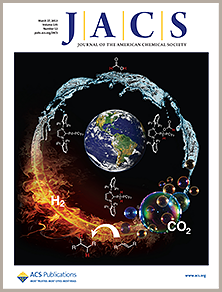
The [Pd(SIPr)(PCy3)] complex efficiently promotes a tandem process involving dehydrogenation of formic acid and hydrogenation of C-C multiple bonds using H2 formed in situ. The isolation of a key catalytic hydridoformatopalladium species, [Pd{OC(O)H}(H)(IPr)(PCy3)], is reported. The complex plays a key role in the Pd(0)-mediated formation of hydrogen from formic acid. Mechanistic and computational studies delineate the operational role of the palladium complex in this efficient tandem sequence.

10.1021/ja311087c